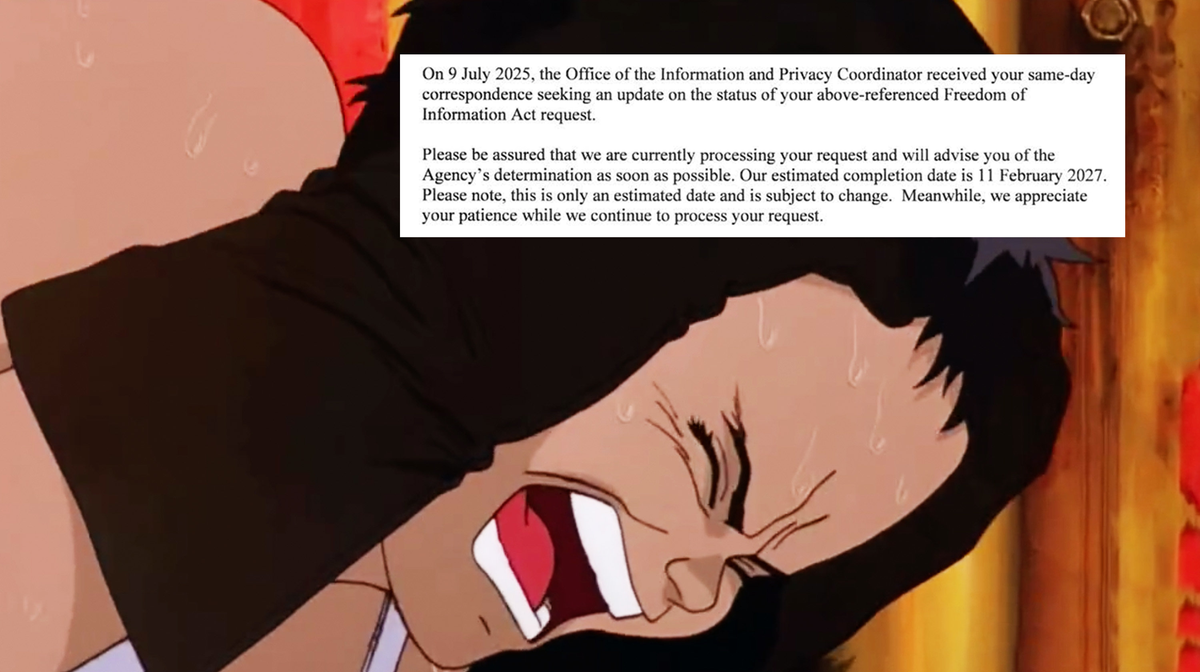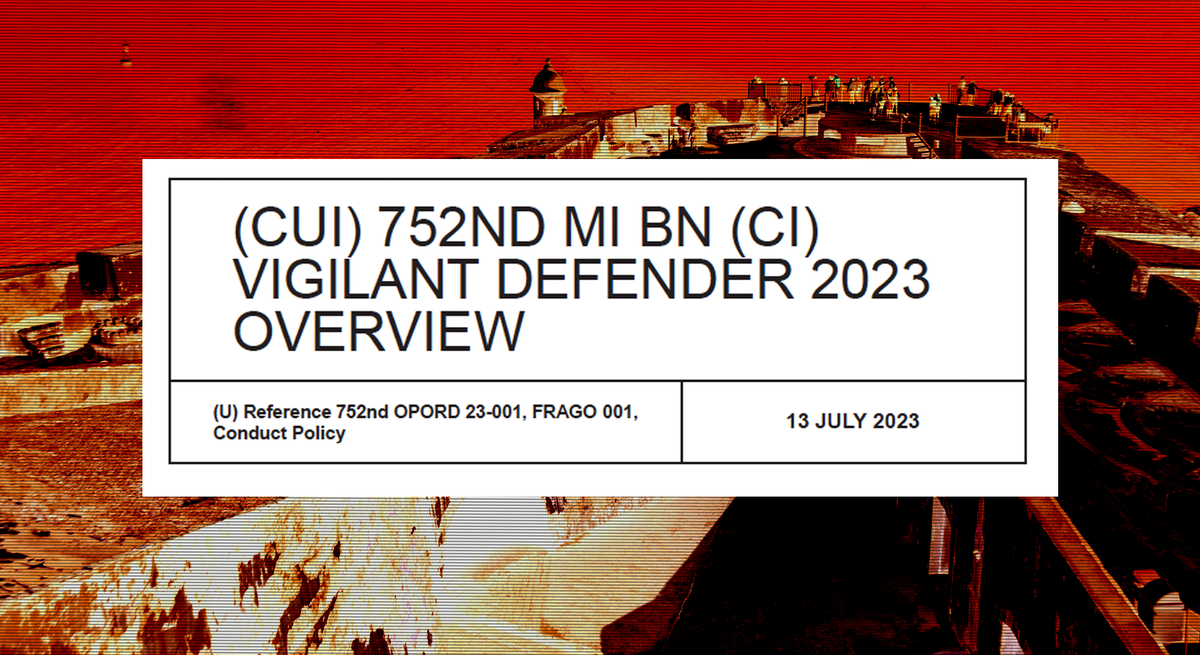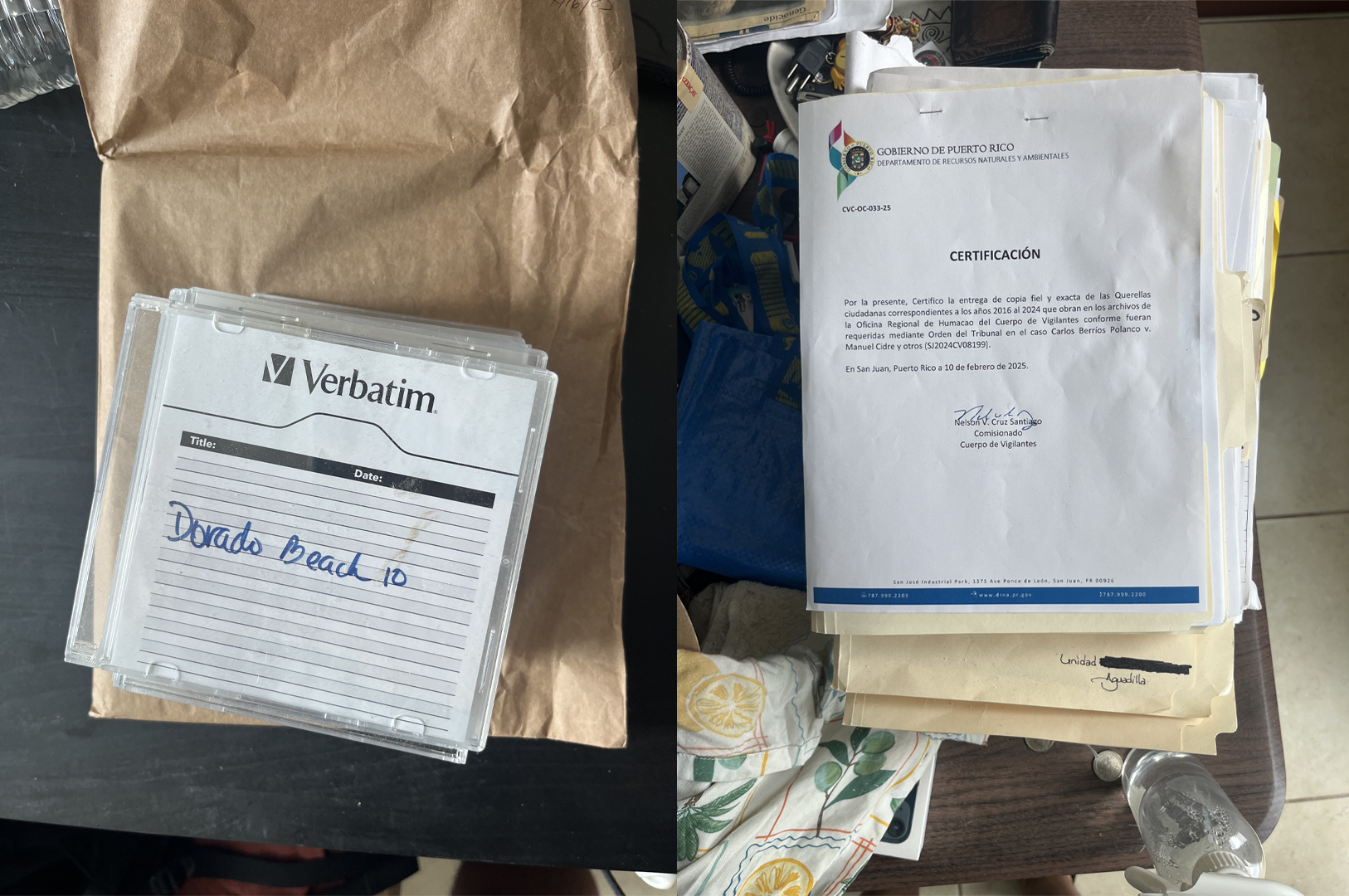FOIA Headaches
The kids are saying that filling a records request with a government agency is the new "getting yourself a sweet treat."

Hello, dear reader! Here's what's in this week's newsletter:
- A half-explanation, half-rant about public records-based reporting, why it's so hard to do sometimes, and why it takes so damn long.
- The only public record that I've ever received from Puerto Rico's fiscal control board, which is infamously impervious to records requests.
As a reminder, Heavy Weather is owned and operated by a single person – me – who has to do all of the reporting, writing, paying for court documents, submitting public records, etc... that keeps this thing running. Thanks to the few paying subscribers that I have, I've been able to defray some of those costs and even put a little bit of money back into the newsletter. If you've enjoyed reading this newsletter, find anything I write interesting, or just plain want to support indie journalism, you can become a paid subscriber today for as low as $5/month. Paid subscribers, get access to weekly roundup column where I recommend a book, a movie, some articles, and 2-4 songs.
Last week, I received an interim response to a Freedom of Information Act (FOIA) request I sent to the CIA for information about “Operation Alliance.” The response said the estimated completion date for my request is February 11, 2027, nearly two years after I filed the initial request. And that doesn’t guarantee that they will actually give me any documents. Their response could simply be to cite an overly broad FOIA exemption and say that giving me any documents would pose a risk to active law enforcement operations, which is what ICE and the FBI told me when I requested the same documents from them.

The two denials, and the CIA’s slow walking of what will likely end up being a denial is emblematic of how hard it is to do records-based reporting.
I first stumbled on the phrase “Operation Alliance” in an affidavit written by HSI agent Kevin Pared justifying the surveillance and arrest of an undocumented Dominican migrant. After a little bit of googling, I found there are seemingly multiple “Operation Alliances” undertaken by federal law enforcement, one that’s a decadeslong multi-agency effort to interdict drug smuggling along the U.S. border[[1]]. Other than that, there’s very little contemporary information about the program, which is why I submitted FOIA requests[[2]] with multiple federal agencies hoping that one would respond with even a crumb of new information. But, alas, I have not received anything else other than what I’ve told you.
There’s very little factual reporting (not conspiracizing) about law enforcement operations and military training in Puerto Rico that isn’t outright fawning over cops. So, any time I see the words “operation” or “task force” or anything like that, I submit a swath of requests with every agency that I can think of. A lot of them get turned down for the same reasoning that ICE and the FBI gave me: FOIA Exemption 7. The exemption allows law enforcement to exempt from disclosure any material that would undermine their interests. That can really mean anything they want. Out of all the exemptions used in the fiscal year 2020, Exemption 7 was cited 58.6% of the time, according to an analysis from the Project on Government Oversight. The FBI and ICE specifically cited 7(A), which is meant to protect information that could interfere with law enforcement proceedings. (While I cited the arrested migrant’s affidavit, I did not specifically ask for information about him and just general documents that mentioned the phrase “Operation Alliance.” The migrant pleaded guilty to the charge against him in May and his docket hasn’t been updated since July.)
I appealed their response (you should always do this) only for them to respond that they investigated themselves and found they were 100% correct in using the exemption. There’s not much else I can do other than sue them for information and I have no money for that (if you want me to have money for that, become a paid subscriber today!)
I explain all this minutiae to show that FOIA reporting is taxing, that it takes too long, and to show the extent of what the government wants to hide from you.
FOIA records from the Army Reserve led to an article about the Army Reserve’s largest counterintelligence exercise. It’s one of my favorite things I’ve written for Heavy Weather (it’s also my most viewed TikTok). Before I filed my FOIA, the only information about the counterintelligence exercise the story is focused on came from an Army blog post. However, thanks to the FOIA I was able to learn much more about it. I FOIA’d my original FOIA looking for any extra information about the hundreds of documents mentioned within those documents that couldn’t be located and received a series of emails were things were seemingly redacted at random in places. The Army Reserve FOIA person has since emailed me to say that my FOIA appeal has been handed over to the Office of General Counsel and that I should expect a response at some point.

I have a bunch of other FOIA’d documents that are equally interesting that I haven’t turned into stories for Heavy Weather or elsewhere because I haven’t had the time or people haven’t taken up my pitches. That will hopefully change in the near future, when I announce some fun work news. But, I want to give readers a bite-sized treat: the IRS recently granted me expedited processing for my request about Act 20/22 investigations and I should be getting those documents in early-to-mid September.
Meanwhile, my success with state level records requests is just as mixed.
As readers will know, I’m a little obsessed with the archipelago’s multiple lawsuits against the fossil fuel industry. So, when the government dropped its lawsuit against Big Oil and Gas, I immediately submitted a records request with the Governor’s Office and the Puerto Rico Department of Justice. The former hasn’t responded even though there’s a 20 day max time limit. Meanwhile, the latter said that every single document in their possession about the dismissal falls under attorney client privilege. So, much for transparency — which their letter assured me is a priority for them (lol lmao).

As part of a video for indie journalist Bianca Graulau, I submitted a records request to the Permit Management Office (OGPe) and the Department of Natural and Environmental Resources (DRNA). The OGP originally quoted me thousands of dollars in fees to produce the documents while the DRNA simply did not respond. However, thanks to the good folks at the Centro de Acceso de Información at the Universidad Interamericana, we were able to sue the agencies for the documents. The OGPe relented without having to get a court date and handed us about two dozen CDs with the permits we asked for. Meanwhile, the DRNA was bullish and we had to see them in court. There, a judge told them to hand the documents over and that they had taken far too long to respond. The DRNA was forced to hand them over in batches and also revealed that some of the complaints we requested were inaccessible because they were “damaged” with rat shit (not a euphemism, genuine rat shit).

By the time we received the documents from the DRNA, our investigation had already focused on another aspect and the documents were not as useful to us as when we originally requested them. I have been very, very, very slowly digitizing these documents so that they can be used for future stories because, while I love physical media when it comes to a 4k digital restoration of Ghost Dog, handling hundreds upon hundreds of physical documents for journalism purposes is a nightmare.
This type of stuff is a huge problem with records requests at every level. Because FOIA and other records laws don’t have any teeth, many agencies know they can slow walk or outright deny requests they don’t want to respond to. The only thing you can do as a requester is hassle them incessantly about it or sue them, which is fairly prohibitive for most people. Other times, agencies will choose to put an obstacle in your path by handing you physical documents or in a format that isn't easy to readily access. To be fair, this isn’t always the case. Sometimes, agencies do not have the necessary resources or personnel to handle the amount of requests they receive.
As the US government and other state governments — including Puerto Rico’s — have steadily moved towards authoritarianism, they have also attempted to shred these public records laws to bits. The Trump administration has outlined a plan to throw out the Department of Energy’s FOIA requests en masse unless you proactively tell them you’re still interested in your requests, per 404 Media. Meanwhile, on the archipelago, there’s currently two bills making the rounds that put up roadblocks to getting public records. Thankfully, there’s been opposition to them, but that doesn’t mean they won’t get passed because very few government officials have a vested interest in transparency.
There’s one “agency” in Puerto Rico that is very much not about transparency and is infamously un-records requestable: the Financial Oversight and Management Board (FOMB). An unelected fiscal control board established in 2016 by Barack Obama, the FOMB has gutted public services and pushed austerity measures ostensibly to pay off the archipelago’s debt. Since the FOMB has its hands in so many pies, journalists wanted to get their documents. But, following a lawsuit from the Centro de Periodismo Investigativo, the U.S. Supreme Court declared that the FOMB was immune to records requests because they have sovereign immunity. To quote, Dr. José Caraballo Cueto in a piece I wrote about what might happen after Trump decimated the FOMB’s leadership, “that totalitarianism, it seems like it’s easier to explain when it comes to a colony.”
However, it’s not impossible to get emails and documents from the FOMB. When I requested documents and emails that mentioned the phrase "parametric insurance” and "catastrophe bonds”[[3]] from the Puerto Rico Fiscal Agency and Financial Advisory (AAFAF), I was quite surprised to receive an email the executive director of the FOMB, Robert Mujica, sent to then then-head of AAFAF, Omar Marrero. Sadly, there’s nothing salacious in the emails. But they do show Mujica pressing Marrero about approval for the purchase of the catastrophe bond, only for Marrero to riposte by responding that the purchase of the insurance “has been part of the fiscal plan for a while and your team has been briefed since last year.” Marrero’s email also says the FOMB reviewed milestones prior to releasing the funds.

Whomst among us hasn’t been an unelected baron of a colony and not known the projects our team was approving and not approving. Getting this email was completely by accident, so it’s not a tried and true strategy. But it’s definitely something that I’m keeping in mind for future requests.
Reporting on public records request is often tedious, sometimes expensive, and takes far too long for a process ostensibly meant to ensure government transparency. However, it has also given rise to some of the most important reportage of the 20th and 21st century. I've been filling records requests for about two years more or less. While I've been able to liberate hundreds of pages of previously unreported government documents, what I haven't been able to get haunts me. Nevertheless, submitting records requests is a numbers game. So, I will continue filing my ~20 requests a month from now until I die.

[[1]]: Other "Operation Alliances" seem to be an immigration enforcement operation in California and an operation that was part of a task force that investigated mail in Michigan.
[[2]]: As an aside, filing records requests is free and anybody can do it! I use the MuckRock, a service that helps organize requests and does all the follow up for you in an automated way. While the service isn't free ($5 per request), I would not be able to keep up with any requests I make without it. They also have a LOT of useful tips about requesting records. Be warned, though. It's a little iffy when it comes to requesting records from Puerto Rico, likely because they get very few of those.
[[3]]: I pitched an article about Puerto Rico's cat bonds at a place and haven't heard back. So, I might honestly just post an article on Heavy Weather with all the documents I received. This Machine Kills has a great podcast about catastrophe bonds. Friend of the newsletter, James Baratta also has a good article about Florida investing in cat bonds.






